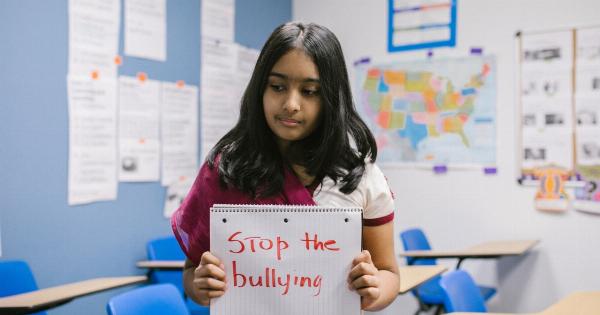Parents have a significant impact on shaping the beliefs, self-esteem, and emotional well-being of their children. Words have power, and the way parents communicate with their kids can either lift them up or bring them down.
While parents often have good intentions, there are certain harmful words and phrases that can hurt children, leaving lasting emotional scars. In this article, we will explore 14 harmful words parents use that have a negative impact on their kids’ self-worth and overall development.
1. “You’re worthless”
Telling a child that they are worthless can severely damage their self-esteem. Instead of using such harsh language, parents should focus on encouraging and supporting their children to build their self-confidence.
2. “You always disappoint me”
Using phrases like “You always disappoint me” can make children feel like they are constantly failing to meet their parents’ expectations. This can lead to feelings of inadequacy and hinder their personal growth.
3. “You’re such a failure”
Calling a child a failure reinforces the idea that they are incapable of achieving success. It is important for parents to encourage their children to learn from their mistakes and provide them with the necessary support to overcome challenges.
4. “I wish you were more like your sibling”
Comparing siblings negatively can create a toxic environment and breed resentment between siblings. Each child is unique and should be appreciated for their individual qualities and strengths.
5. “You’re fat/ugly”
Comments about a child’s physical appearance can have long-lasting effects on their body image and self-esteem. It is crucial for parents to establish a positive body image and promote a healthy relationship with food and exercise.
6. “You’re so stupid”
Using derogatory language to describe a child’s intelligence can have detrimental effects on their academic performance and overall confidence.
Parents should focus on nurturing their child’s learning abilities and providing them with the necessary resources to succeed.
7. “You’ll never amount to anything”
Telling a child that they will never be successful can hinder their motivation and drive. Instead, parents should communicate a belief in their child’s potential and support them in pursuing their dreams.
8. “You’re a burden”
Labeling a child as a burden can create feelings of guilt and shame. Parents should reinforce a sense of love and acceptance, consistently reminding their children that they are valued members of the family.
9. “You’re too sensitive”
Dismissing a child’s emotions and labeling them as too sensitive can invalidate their feelings and cause them to suppress their emotions. Parents should encourage open and honest communication, fostering a safe space for emotional expression.
10. “You’re lazy”
Criticizing a child’s work ethic by calling them lazy can discourage them from striving for success. Instead, parents should focus on teaching discipline, time management skills, and the importance of consistent effort.
11. “You’re a disappointment”
Telling a child that they are a disappointment can leave them feeling unloved and unworthy. It is crucial for parents to express their unconditional love and support, even when their children make mistakes or fall short of expectations.
12. “You ruined everything”
Blaming a child for negative outcomes or problems within the family can lead to feelings of guilt and shame. It is essential for parents to address conflicts in a constructive manner and avoid placing the blame solely on their children.
13. “You’re just like your [negative trait] parent”
Associating a child with negative traits of a parent can create a sense of identity crisis and damage their self-image. Parents should encourage their children to develop their own unique identities and strengths.
14. “I don’t love you anymore”
Threatening to withdraw love can deeply hurt a child’s emotional well-being. It is crucial for parents to express their love unconditionally, even when faced with challenges or difficulties.
Conclusion
Parents have a significant responsibility in shaping their children’s self-worth, confidence, and overall well-being. The words and phrases they use can have a lasting impact on their emotional development.
It is essential for parents to be mindful of the harmful words listed above and instead choose words that uplift, encourage, and support their children’s growth. By fostering a positive and nurturing environment, parents can help their children develop into resilient, confident individuals.






























